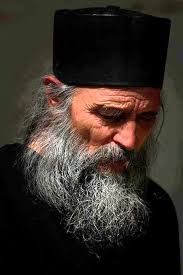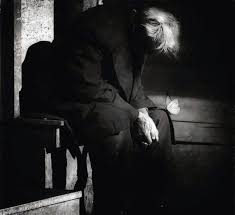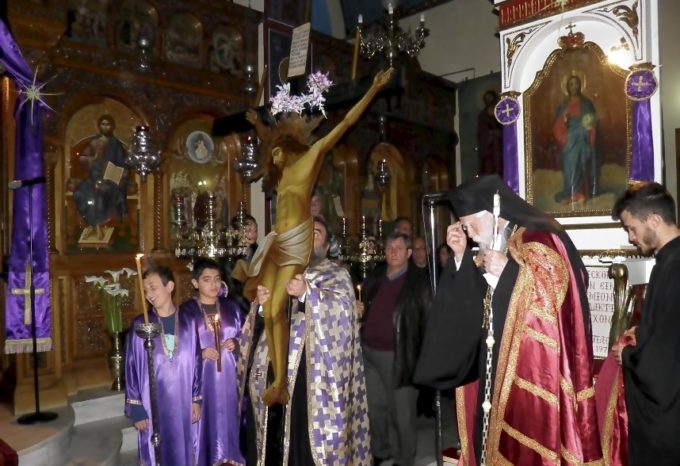Saint Nektarios in his book Know yourself says about the virtue of meekness:
Meekness is the peace of the soul that loves God and his fellow men. Meekness is a virtue loved by God, that pleases everybody who looks at its face. The meekness of character overflows like a rare beauty and enriches with grace its entire ethos, giving pleasure to everybody who sees it. Meekness is a priceless fortune, is a divine name, is a divine charism, is the stairs that leads the man to the skies.
Meekness makes the man be an image of the meek Jesus, who warms the heart. Meekness is followed by humility, tolerance and patience. The meek is benevolent and friendly with everybody, and he treats the sinners leniently. It does not argue, it does not blaspheme, it does not curse, but lovingly corrects those who are wrong.1
Saint Basil the Great, in Monastic Ordinances says:„The anger at the right time is suitable even for those who have great meekness. Because even Moses who was known as the meekest man on earth when time required it angered and he reached such a degree of unrest that he manifested his anger to the dismay of those who were his fellow countrymen when these were making their calf and when they served Belfegor. It is quite possible that the meek one may anger himself when the sense requires it but he does not destroy the virtue of meekness. When someone remains impassive and does not anger when the circumstances require it, it does not mean meekness but passivity.2
Saint Paisios explaining that The Fruit of the Spirit is love, joy, was saying: If I don’t want to get upset, for being glad and for not losing my peace, in order to be meek, I am careless. The spiritual meekness is something and something else is the meekness coming from carelessness. Some say: I have to be glad because I am Christian. I have to be peaceful because I am Christian. But these are not Christians. Do you understand? This is carelessness, is worldly joy. The one who has these worldly traits is not a spiritual man. The spiritual man is entirely pain. Meaning that he feels pain for situations, for people but he is rewarded for this pain with divine comfort. He feels pain but he also feels inside himself the divine comfort, because God gives His blessings from heaven to the soul and the man rejoices in divine love. This is the real spiritual joy, which cannot be expressed and which overflows the heart.3
Saint John of Kronstadt, explaining the Beatitudes says: Meekness is a peaceful disposition of the soul that believes with fermity and loves Jesus Christ and who suffers any evil caused to him by the people or by the guile of the devil. The meek man does not get irritated and is not annoyed by opposition and obstacles, he forgives easily the offences of the people and prays for the goodness of his enemies, because he respects the human and Christian value. The meek man never pays back the evil with evil or the guile with guile. He does not get annoyed, he does not raise his voice wildly when the others offend or hurt him. God our heavenly Father always behaves with meekness with us when we do wrong things and upset Him. He does not punish us. He bears us and does always good to us. That is why we have the duty to become meek, lenient and patient with our brothers. 4
Saint John Chrysostom tells us how we should behave with people : Did he slander you? Praise him. Did he offend you? Speak well about him. He had bad thoughts against you? Do him good, reward him with the opposite ones if you truly care for his salvation and not for your passion, willing to take revenge. But despite all these you will say, he became worse although he was treated with long bearing patience. This is due to him, not to you. Do you want to know what God suffered? They destroyed His altars, killed his prophets and He suffered everything. Couldn’t He struck with thunder from heaven? No, after He had sent the prophets and they killed them He sent His Son. When they offended Him more He did them more good.5
1 Saint Nektarios of Pentapolis, Works, vol.5, p. 381.
2 Vasilio Apothisavrisma, ed. Fotodotes, p. 596.
3 Elder Paisios the Athonite, Spiritual Awakening, p. 50.
4 Saint John of Kronstadt, Beatitudes, edition by P. Botsis, p. 54.
5 Saint John Chrysostom, PSB (Greek), vol. 16A, p. 233.
Source: Orthodoxos Typos, March, 7th 2014.






